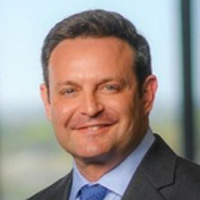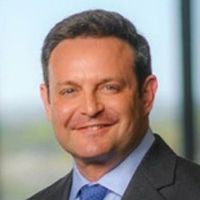Pay the Taxes You Owe and Not a Cent More
Stressing about the taxes you’ll pay in retirement? Here are some ways to help reduce your tax liability when you retire, including managing RMDs.

Profit and prosper with the best of Kiplinger's advice on investing, taxes, retirement, personal finance and much more. Delivered daily. Enter your email in the box and click Sign Me Up.
You are now subscribed
Your newsletter sign-up was successful
Want to add more newsletters?

Delivered daily
Kiplinger Today
Profit and prosper with the best of Kiplinger's advice on investing, taxes, retirement, personal finance and much more delivered daily. Smart money moves start here.

Sent five days a week
Kiplinger A Step Ahead
Get practical help to make better financial decisions in your everyday life, from spending to savings on top deals.

Delivered daily
Kiplinger Closing Bell
Get today's biggest financial and investing headlines delivered to your inbox every day the U.S. stock market is open.

Sent twice a week
Kiplinger Adviser Intel
Financial pros across the country share best practices and fresh tactics to preserve and grow your wealth.

Delivered weekly
Kiplinger Tax Tips
Trim your federal and state tax bills with practical tax-planning and tax-cutting strategies.

Sent twice a week
Kiplinger Retirement Tips
Your twice-a-week guide to planning and enjoying a financially secure and richly rewarding retirement

Sent bimonthly.
Kiplinger Adviser Angle
Insights for advisers, wealth managers and other financial professionals.

Sent twice a week
Kiplinger Investing Weekly
Your twice-a-week roundup of promising stocks, funds, companies and industries you should consider, ones you should avoid, and why.

Sent weekly for six weeks
Kiplinger Invest for Retirement
Your step-by-step six-part series on how to invest for retirement, from devising a successful strategy to exactly which investments to choose.
It’s not exactly a secret that the United States government has a spending problem. The national debt is at $31.5 trillion and counting, and at some point, the bill is going to come due. One possible scenario, of course, would be a massive increase in taxes.
Already, one tax increase is on the horizon. Unless something changes between now and then, the 2017 tax cuts are set to expire at the end of 2025.
This dark cloud of taxes hovering over the future can be especially troubling for retirees, many of whom already worry about making sure their savings last the rest of their lives. Fortunately, options exist to help reduce your tax liability in retirement. Here are a few strategies to consider now.
From just $107.88 $24.99 for Kiplinger Personal Finance
Become a smarter, better informed investor. Subscribe from just $107.88 $24.99, plus get up to 4 Special Issues

Sign up for Kiplinger’s Free Newsletters
Profit and prosper with the best of expert advice on investing, taxes, retirement, personal finance and more - straight to your e-mail.
Profit and prosper with the best of expert advice - straight to your e-mail.
Roth conversions
Converting traditional IRA and 401(k) accounts to Roth accounts has become a popular way to reduce the amount of taxes you will pay in retirement. Many Americans have their retirement savings in tax-deferred accounts, such as those traditional IRAs or 401(k)s. This means that the money they contributed to those accounts was not taxed. But the tax bill is coming due when they retire and begin making withdrawals.
Also, starting at age 73, people holding those accounts are subject to required minimum distributions (RMDs). That means they must withdraw a certain percentage each year and pay taxes on the withdrawal, even if they don’t need the money. (The RMD age has changed. More on that in a moment.)
Roth IRAs don’t have an RMD. That’s because they are not tax-deferred accounts. Instead, you pay taxes on the money at the time of contribution. After that, the accounts grow tax-free, and you aren’t taxed when you make withdrawals in retirement.
This is why it can be a smart move to begin now to shift your money from tax-deferred accounts to Roth accounts. You pay taxes when you make the Roth conversions, but the money then grows tax-free, and you won’t have to worry about those RMDs.
Just make sure you do it the right way. You don’t want to shift all your money all at once because you can push yourself into a higher tax bracket and end up with a hefty tax bill.
Also, if you are on Medicare Part B or Part D, you could trigger an increase in your premium. It’s best to stretch the conversion over several years. A financial professional should be able to help you determine the best strategy for you.
Qualified charitable distributions
The qualified charitable distribution, or QCD, is another way to avoid paying RMDs. This is especially advantageous for people who don’t need their IRA money and would like to give to a favorite charity. If you set up a QCD, you can send your withdrawal directly to that charity, and there is no tax on it.
You just need to make sure that you set things up for a direct transfer from your IRA to the QCD. If the money goes to you first and then you make the contribution to the QCD, the withdrawal is still taxed. A few other things to know: You must be age 70½ or older to set up a QCD; an IRA is eligible, but a 401(k) is not; and individuals can contribute up to $100,000 annually.
A donor-advised fund
Over the years, the standard deduction on the 1040 form has risen so high ($27,700 for a married couple filing jointly in 2023) that most people no longer itemize deductions. This means charitable donations don’t have the tax advantage they once did. But in some cases, a donor-advised fund can help.
This is an account established where you place donations to be distributed to a favored charity. Your donation is immediately tax deductible, but the money can be paid out to the charity over years, gaining interest in the meantime.
How does this help you outpace the standard deduction? As just one example, let’s say that you donate $10,000 to your church each year. You could donate $30,000 to the donor-advised fund in one year and claim the tax deduction, but the church would be paid the money over time.
Age for taking RMDs has changed
As mentioned earlier, the age you must begin taking RMDs has been 72, but there are new RMD rules. Starting this year, the RMD age is raised to 73. Then, starting on Jan. 1, 2033, it will go up to 75.
That might sound good, allowing you to delay the RMDs longer, but it has its own pitfalls. RMDs are calculated based on a percentage of the money in the account. That extra time delaying the RMD could mean you will have an even larger balance, meaning the RMD will be larger and the amount of taxes owed greater. That’s one more reason to consider converting to a Roth.
One important thing to remember about taxes is that, too often, people fail to think about them until it’s filing time in April, and they check in with a CPA. At that point, it’s too late to do much to help lower your tax bill from the previous year. Dec. 31 is the real tax deadline — not April 15.
CPAs do great work and will help make sure you are in compliance with the laws and that you take advantage of any tax credits or deductions you are due. But their focus is tax preparation, not tax planning. In other words, if you didn’t already make moves with your Roth, set up that QCD, establish a donor-advised fund or take other steps aimed at minimizing your taxes, your CPA’s hands (and calculator) will be tied.
This is why it doesn’t hurt to have a tax team on your side. In addition to your CPA, you should have a financial professional who understands how to navigate the tax rules to position your money in the most advantageous manner.
The desired result: You will pay what the laws require — but not a penny more.
Ronnie Blair contributed to this article.
The appearances in Kiplinger were obtained through a PR program. The columnist received assistance from a public relations firm in preparing this piece for submission to Kiplinger.com. Kiplinger was not compensated in any way.
Profit and prosper with the best of Kiplinger's advice on investing, taxes, retirement, personal finance and much more. Delivered daily. Enter your email in the box and click Sign Me Up.

Steve Meeks is the president and founder of Interlinc Financial, where he helps clients protect their wealth and lifestyles. With decades of experience, Meeks uses an educational approach to ensure clients have the knowledge to make informed, productive choices. He is a tactical and strategic thinker — skills he developed as a U.S. Navy tactical strategist specializing in warfare and search and rescue. Steve Meeks has passed the 65 Securities exam and has a life insurance license.
-
 Quiz: Do You Know How to Avoid the "Medigap Trap?"
Quiz: Do You Know How to Avoid the "Medigap Trap?"Quiz Test your basic knowledge of the "Medigap Trap" in our quick quiz.
-
 5 Top Tax-Efficient Mutual Funds for Smarter Investing
5 Top Tax-Efficient Mutual Funds for Smarter InvestingMutual funds are many things, but "tax-friendly" usually isn't one of them. These are the exceptions.
-
 AI Sparks Existential Crisis for Software Stocks
AI Sparks Existential Crisis for Software StocksThe Kiplinger Letter Fears that SaaS subscription software could be rendered obsolete by artificial intelligence make investors jittery.
-
 Social Security Break-Even Math Is Helpful, But Don't Let It Dictate When You'll File
Social Security Break-Even Math Is Helpful, But Don't Let It Dictate When You'll FileYour Social Security break-even age tells you how long you'd need to live for delaying to pay off, but shouldn't be the sole basis for deciding when to claim.
-
 I'm an Opportunity Zone Pro: This Is How to Deliver Roth-Like Tax-Free Growth (Without Contribution Limits)
I'm an Opportunity Zone Pro: This Is How to Deliver Roth-Like Tax-Free Growth (Without Contribution Limits)Investors who combine Roth IRAs, the gold standard of tax-free savings, with qualified opportunity funds could enjoy decades of tax-free growth.
-
 One of the Most Powerful Wealth-Building Moves a Woman Can Make: A Midcareer Pivot
One of the Most Powerful Wealth-Building Moves a Woman Can Make: A Midcareer PivotIf it feels like you can't sustain what you're doing for the next 20 years, it's time for an honest look at what's draining you and what energizes you.
-
 I'm a Wealth Adviser Obsessed With Mahjong: Here Are 8 Ways It Can Teach Us How to Manage Our Money
I'm a Wealth Adviser Obsessed With Mahjong: Here Are 8 Ways It Can Teach Us How to Manage Our MoneyThis increasingly popular Chinese game can teach us not only how to help manage our money but also how important it is to connect with other people.
-
 Looking for a Financial Book That Won't Put Your Young Adult to Sleep? This One Makes 'Cents'
Looking for a Financial Book That Won't Put Your Young Adult to Sleep? This One Makes 'Cents'"Wealth Your Way" by Cosmo DeStefano offers a highly accessible guide for young adults and their parents on building wealth through simple, consistent habits.
-
 Global Uncertainty Has Investors Running Scared: This Is How Advisers Can Reassure Them
Global Uncertainty Has Investors Running Scared: This Is How Advisers Can Reassure ThemHow can advisers reassure clients nervous about their plans in an increasingly complex and rapidly changing world? This conversational framework provides the key.
-
 I'm a Real Estate Investing Pro: This Is How to Use 1031 Exchanges to Scale Up Your Real Estate Empire
I'm a Real Estate Investing Pro: This Is How to Use 1031 Exchanges to Scale Up Your Real Estate EmpireSmall rental properties can be excellent investments, but you can use 1031 exchanges to transition to commercial real estate for bigger wealth-building.
-
 Should You Jump on the Roth Conversion Bandwagon? A Financial Adviser Weighs In
Should You Jump on the Roth Conversion Bandwagon? A Financial Adviser Weighs InRoth conversions are all the rage, but what works well for one household can cause financial strain for another. This is what you should consider before moving ahead.
